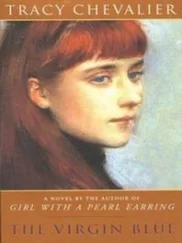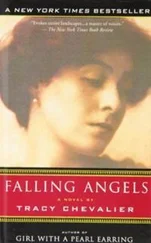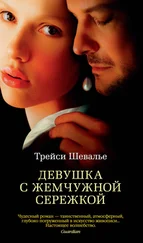He also had Robert dig up a few more seedlings-not of sequoias, since they had moved out of range, but of incense cedars and ponderosa pines. He watched closely as Robert placed the spade near the first cedar seedling, paused, moved it a little further away, then hesitated with his foot on the top of the blade. “Go on, lad,” Lobb said. “A firm foot and a clean slice is what you want.”
Robert cut swiftly through the duff, four slices around the seedling, and pulled it out in a square of dusty, needly soil.
“That’s right. Now, pop it in the pail.”
He directed him in digging up three more seedlings, then must have felt Robert had mastered it, for he moved on to showing him how to press flowers for drying. By the end of the day Robert was beginning to understand the rudiments of plant collecting.
From Murphys they traveled along other roads and paths that led through the foothills of the Sierra Nevadas onto the flat plain of central California. The shift from the conifer-dominated mountains down through the hills covered with dried golden grass and clumps of evergreen canyon oaks meant there were few opportunities for collecting, as the oaks were of no interest to the English. William Lobb was dismissive of them. “No reason ever to send scrubby things like these to a country famous for its oaks. Ah, the oaks of England-now there’s a tree. If redwoods are the backbone of California, oaks are of England. Huge, gnarled, full of personality. Do you know Charles II hid from soldiers in an oak tree in Shropshire? The tree was so popular that afterwards people killed it by taking bits of it as souvenirs. A lesson for Billie Lapham in that.”
It turned out William Lobb was quite a talker. He and his brother Thomas had grown up in a quiet village in Cornwall, and both had then gone on to have remarkable lives as plant collectors. Over the ride to Stockton, Robert heard all about Lobb’s travels, to the northern and southern parts of California, but also further afield, to Panama, Peru, Chile, Argentina, Brazil-indeed, all over South America. He heard of snow and steep mountain passes, wars and assassinations, illness and delay. Robert himself had had adventures, of course; it was impossible to cross America as he had without incident. He had been thrown in jail and hidden from Indians and almost drowned crossing rivers and been stalked by wolves and wildcats. But Lobb’s travels were several notches more exotic, made even more so by the matter-of-fact way he described the harsh landscape and blizzards and brutal sun and the encounters with locals and the shootings and the government revolutions.
He underscored his stories with bitter and sarcastic remarks about James Veitch, the English nurseryman who had sent William to South America and California and Thomas Lobb to Asia to discover and collect plants. “He hasn’t got a clue what Tom and I have to go through to get plants for him-to make money for him. I doubt he’s ever set foot on a ship, or camped in snow, or ridden for twenty hours a day. He complains when the stagecoach from Exeter to London gets stuck in the mud! Dolt.”
Mostly, though, Robert heard of plants: long lists of Latin names he didn’t recognize, not even when William Lobb showed him sketches in his notebooks. Passiflora mollissima . Embothrium coccineum . Tropaeolum lobbianum . Crinodendron hookerianum . Tropaeolum azureum . Araucaria imbricata . The common names were equally exotic. Passion flower. Firebush. Lantern tree. Flame flower. Blue nasturtium. Monkey puzzle. The last name made Robert smile. “A Chilean pine,” Lobb explained. “Peculiar looking. Doesn’t have needles, but thick shiny spines grow all over the branches and on the trunk too. Someone looking at one growing in Cornwall said it would be a puzzle for a monkey to climb it-those spines are sharp, draw blood. Silly, really, as there aren’t any monkeys in Chile. But that’s how they are back in England-lump all the faraway countries together, have ’em share plants and animals. At least the name’s a good one.”
As he listened, Robert began to understand how limited his knowledge of plants and trees was. He knew birches from aspens, beeches from hornbeams, maples from sycamores. But he could not tell all of the Californian pines apart, the gray pine from the coulter, the bishop from the knobcone from the Monterey. William Lobb spent a long time by the fire that night describing the pyramid shape of the bristlecone fir, its beautiful dark green color, its singular cones with their leafy bristles. Robert had never even heard of it, much less seen one.
That night he lay wrapped in his blanket, head on his saddle, and let the names stream through him. Begonia. Rhododendron. Amaryllis. Mallow. Fuchsia. He didn’t know any of them, and wanted to.
By the time they reached Stockton they had lost one of the sequoia saplings, which snapped off when the buckskin shied at a partridge fluttering out from the undergrowth. Lobb was sanguine about the loss. “I fully expect to lose the other one as well,” he said. “If we don’t lose it on the way to San Francisco it’ll likely die on board the ship taking it to England. The seedlings stand a better chance. But seeds are best.”
From Stockton they took a steamboat down the San Joaquin River to San Francisco. Robert had seen these steamers going up and down the rivers between Sacramento or Stockton and San Francisco, but never been on one himself. Nor had the gray. Predictably, he rebelled against the floating sensation under his feet, rearing and kicking as Robert led him on board and managing to knock over the other sequoia sapling and trample it. “That’s one to your horse, one to mine,” William Lobb remarked, throwing the broken tree into the river.
The gray continued to buck and kick in the rickety stalls until Robert held him around the neck and put a sack over his eyes. At last the horse grew calm, and Robert was able to rejoin Lobb on deck.
As the boat paddled down the river, they stood together and watched the scenery pass by. Miles and miles of flat, fertile land stretched out before them: grasses browned from the long summer sun, broken by oases of green where there was water and people had settled and built farms. Occasionally they saw groups of Indians walking with baskets full of acorns, or riding in groups, a long string of horses paralleling the river. They stopped and watched the boat, which was still a novelty even though there had been steamers up and down the San Joaquin for several years now. Young boys fishing abandoned their poles and ran along the bank, racing the steamer. Robert could feel himself being pulled west, a sensation he’d had for much of his life.
“Where do you stay when you’re in San Francisco?” Lobb asked as they watched the boys on the bank grow tired and turn back.
“I’ve never been.” Robert was ashamed to admit that he had been in California almost four years and not yet been to its biggest city. Gold had been like a magnet that held him fast to the Sierra Nevadas, even when he was no longer mining it.
“Ha! You’ll either love it or hate it. I can guess which.”
They crossed the San Francisco Bay and headed towards the shore, Robert marveling at the wide water, the hills, and the hint of ocean beyond. Landing at one of the quays, he and William Lobb were swept up into the bustle of hundreds of men loading and unloading ships from all over the world. They did not linger, however; Lobb led them away from the docks and into the city.
Riding through the streets, Robert discovered that of all the cities he had been to-Detroit, Indianapolis, Chicago, St. Louis, Salt Lake City-San Francisco was by far the worst. Its geography should have made it beautiful and eye-catching, for it was shaped by hills and water so that every part of it boasted a dramatic view. Instead it turned out to be a rough, muddy, smelly place, stripped of trees because they got in the way of the rapid building needed to house the burgeoning population, which had grown from one thousand to thirty-five thousand in four years. Buildings were laid out in a rough grid pattern and crammed together in rows that tiled up and down the slopes. There was no grace to all of these right angles so at odds with the city’s natural surroundings.
Читать дальше
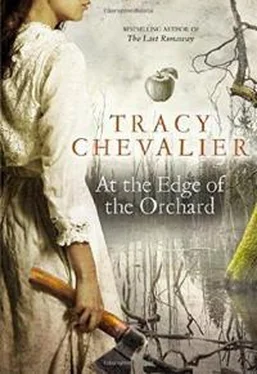

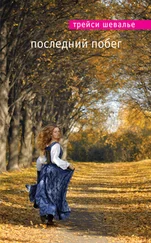

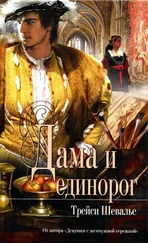
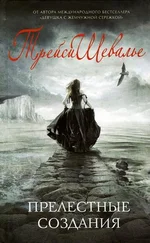
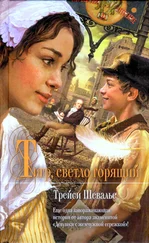
![Трейси Шевалье - Тонкая нить [Литрес]](/books/386177/trejsi-shevale-tonkaya-nit-litres-thumb.webp)
